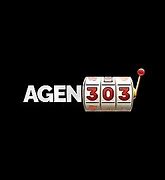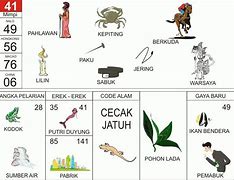
) Expect to Live In the Trenches
Selling insurance is hard, hard work.Insurance agents you see with big houses and nice cars playing golf around the world didn’t get there overnight.They sold and sold and sold.And sold more.It’s the only way to become super successful in this business and if you want to be successful you’re going to have to do it too.
) Bring Up Age First
The best way to avoid an objection is to bring it up and overcome it before the prospect has a chance to.
Make a joke about your inexperience and be open about it.
Once you’ve brought it up, you have the excuse to explain why your prospect shouldn’t be concerned.
(you’re well-trained, you’re licensed, you ask questions when you don’t know answers, etc)
) Be Better Prepared
If your inexperience makes you feel inadequate as a salesperson then find a way to get around it.Work harder, work longer, learn more about your products. Have an answer for every possible question.Read books about sales, listen to sales audio tapes, go to seminars about sales.Get in front of a mirror, a colleague, or a friend and practice your sales scripts, practice your rebuttals, your closes.Nothing comes to you. Prepare yourself and go get it.
Follow these 21 tips to be an inexperienced but insanely successful insurance salesperson:1) Dress More Professionally
Obviously, if you dress more professionally clients are more likely to take you seriously. I don’t need to convince you of that.But when you’re the sharpest dressed person in the office your coworkers and your boss will take you more seriously and most importantly, you’ll take yourself more seriously!Sometimes confidence comes from the outside in. If you look the part everyone, including yourself, will start to believe it.
) Sell to Other Young People
There’s one group you have a huge advantage with in selling… other young people!And guess what…There’s millions of them!Millions buying homes, millions getting married, starting businesses, having kids, buying expensive stuff!Go get them!
) Don’t Spew Features
When you’re new to selling it’s common to focus on product features rather than benefits.At some point you learned all 10 features of a product and you’re anxious to prove your knowledge by telling customers about all 10 of them.Unfortunately they don’t care about all of them.There’s maybe one or two features that interest them and you’re better off asking questions to identify the client’s needs so you can explain how your products will satisfy those needs than trying to explain everything.Don’t spew features on your clients; identify their needs and satisfy them.
Nothing says “bad salesperson” more than using jargon to someone that doesn’t understand it.There is no better way to show prospects you don’t give a %&#! about them than by using terminology no one outside your industry should know!When you’re new, you have a unique advantage of being able to relate to clients as an outsider. People will actually relate better to you if they feel like you’re still on their side. You haven’t crossed over to the “insurance salesman” side.Don’t use jargon, it only makes you look like you’re hiding something.
) Don’t Sell on Price
I get it… people are shopping on price, they’re comparing on price, and they’re buying on price.You buy everything on price too, right?Wrong.Here’s the bottom line:If you honestly believe people only buy on price then quit today. You’re in the wrong business and the industry doesn’t need you.We’re not going to survive with a bunch of price-checkers. The entire industry will suffer if you don’t get out now.Need some ideas for selling value? Read this.
) Avoid Using “Young” Slang
Have you ever told a client or prospect that you were “all about” customer service?Do you express agreement by saying things like, “Gotcha”, “Right on” or “For Sure”?Don’t get me wrong, I believe in being yourself and not apologizing for it, but when you’re trying to sell, the more you speak like your prospect the better success you’ll have.If your prospect doesn’t use those terms it’s harder to earn their trust when you do.
Type of life insurance policy
Whole life insurance, or whole of life assurance (in the Commonwealth of Nations), sometimes called "straight life" or "ordinary life", is a life insurance policy which is guaranteed to remain in force for the insured's entire lifetime, provided required premiums are paid, or to the maturity date.[1] As a life insurance policy it represents a contract between the insured and insurer that as long as the contract terms are met, the insurer will pay the death benefit of the policy to the policy's beneficiaries when the insured dies.
Because whole life policies are guaranteed to remain in force as long as the required premiums are paid, the premiums are typically much higher than those of term life insurance where the premium is fixed only for a limited term. Whole life premiums are fixed, based on the age of issue, and usually do not increase with age. The insured party normally pays premiums until death, except for limited pay policies which may be paid up in 10 years, 20 years, or at age 65. Whole life insurance belongs to the cash value category of life insurance, which also includes universal life, variable life, and endowment policies.
The death benefit of a whole life policy is normally the stated face amount. However, if the policy is "participating", the death benefit will be increased by any accumulated dividend values and/or decreased by any outstanding policy loans (see example below). Certain riders, such as Accidental Death benefit may exist, which would potentially increase the benefit.
In contrast, universal life policies (a flexible premium whole life substitute) may be structured to pay cash values in addition to the face amount, but usually do not guarantee lifetime coverage in such cases.
A whole life policy is said to "mature" at death or the maturity age of 100, whichever comes first.[2] To be more exact the maturity date will be the "policy anniversary nearest age 100". The policy becomes a "matured endowment" when the insured person lives past the stated maturity age. In that event the policy owner receives the face amount in cash. With many modern whole life policies, issued since 2009, maturity ages have been increased to 120. Increased maturity ages have the advantage of preserving the tax-free nature of the death benefit. In contrast, a matured endowment may have substantial tax obligations.
The entire death benefit of a whole life policy is free of income tax, except in unusual cases.[3] This includes any internal gains in cash values. The same is true of group life, term life, and accidental death policies.
However, when a policy is cashed out before death, the treatment varies. With cash surrenders, any gain over total premiums paid will be taxable as ordinary income. The same is true in the case of a matured endowment.[4] This is why most people choose to take cash values out as a "loan" against the death benefit rather than a "surrender." Any money taken as a loan is free from income tax as long as the policy remains in force. For participating whole life policies, the interest charged by the insurance company for the loan is often less than the dividend each year, especially after 10–15 years, so the policy owner can pay off the loan using dividends. If the policy is surrendered or canceled before death, any loans received above the cumulative value of premiums paid will be subject to tax as growth on investment.
Although life insurance benefits are generally free of income tax, the same is not true of estate tax. In the US, life insurance will be considered part of a person's taxable estate to the extent he possesses "incidents of ownership."[5] Estate planners often use special irrevocable trusts to shield life insurance from estate taxes.
) Listen to Your Phone Voice
Record your voice on the phone while talking to some clients.Do you sound smart?Do you sound confident?Do you sound like a little kid who picked up the phone in Daddy’s office?























